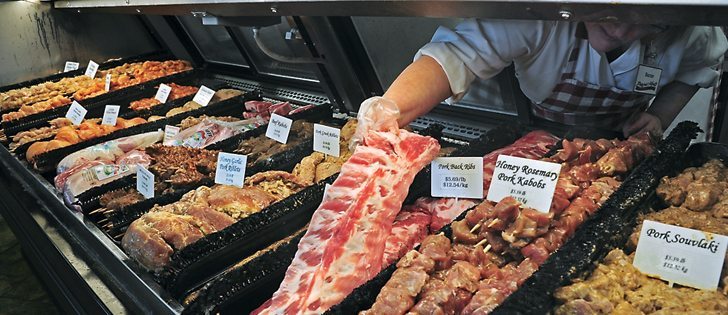Opening borders | Canadian meat industry officials applaud new pacts with the European Union and South Korea
TORONTO — The Canadian meat packing and processing sector is a $24 billion a year industry that welcomes meaningful trade agreements.
Recently inked agreements with South Korea and the European Union are not perfect, but these deals have considerable value, said Jim Laws, manager of the Canadian Meat Council.
Canada exports $4.5 billion worth of meat products annually to 100 countries.
“While our initial hope was to completely open duty free and unlimited trade in meat products from Canada in the European Union, the (trade deal) does represent a very substantial value and most welcome move in that direction,” said Laws at the annual council meeting in Toronto May 6-9.
Read Also

Beef check-off collection system aligns across the country
A single and aligned check-off collection system based on where producers live makes the system equal said Chad Ross, Saskatchewan Cattle Association chair.
Once technical aspects are hammered out, Canada could see an improvement over previous annual sales of $54 million worth of meat exports for the last three years to potential sales of about $1 billion annually.
Canada gained acceptance for duty free exports of 80,000 tonnes of pork, 65,000 tonnes of beef and veal, 3,000 tonnes of bison and unlimited access for horse and prepared meats. The EU will retain duty- free access for beef and pork and prepared meats.
EU inspectors are now inspecting and auditing Canadian processing plants.
Giving the EU open access for pork and beef does not seem entirely fair, but it is a good start, said Laws.
“It is a step in the right direction to accessing the world’s most important market,” he said.
About 17,000 tonnes of high quality European cheese and 1,700 tonnes of industrial cheese will be accepted, and Canada received unlimited access for Canadian cheese to their market.
Arnold Drung, past-president of the council, said a free trade deal between Canada and South Korea is also welcome.
Canada has lost ground to other countries such as the United States, EU, Australia and Chile, which already had earlier agreements granting them greater duty free access for beef and pork exports.
Canada must still pay the Korean tariff of 40 percent on beef and 22.5 percent on chilled pork shipments. Consequently, exports have declined since 2012.
Drung anticipates annual exports could rebound to $100 million worth of beef and $300 million worth of pork.
Increasing market access has been achieved in recent years, but often Canadian packers are criticized for missing out on profitable opportunities and only ship to the U.S. because it is easy, said market analyst Kevin Grier.
“We more than punch above our weight relative to our production, and on pork we are really a heavy hitter as third largest pork exporter in the world,” he told the council.
“The criticism is always that we are missing out and we don’t know how to export very well,” he said.
However, statistics indicate Canada is doing well, considering its size in comparison to other exporting nations.
Canada exports 60 percent of its pork and 40 percent of its overall beef production. Less has been going to the U.S. since 2005, and large volumes are moving to China, Hong Kong, Japan and Mexico.
Domestic demand for beef and pork is stable, so exports are needed to drive prices higher.
Meat goes where the money is, so trading with the U.S. is a good move because it is the world’s richest market.
The movement of meat is fluid, and companies such as Olymel, Maple Leaf, Cargill and JBS have offices around the world ready to do business with whichever market offers the best return.
“It really is a puzzle these companies are trying to piece together on a daily, weekly, monthly basis,” he said.
An increase in global population and incomes has generated a dietary shift. Meat consumption has far exceeded population growth.
Canada Beef Inc. also confirms this country is doing well on the export scene.
In 2013, Canada exported 279,300 tonnes of beef worth $1.3 billion with steady growth building in Asian markets.
Hong Kong and Macau bought 30 percent more volume valued at record levels.
Hong Kong is Canada’s second largest beef market, representing 10 percent of total exports.
Exports to Japan increased 19 percent in volume, representing 5.2 percent of Canada’s total beef exports.
Exports to mainland China took off in 2013, reaching 6,000 tonnes valued at $25 million, up from 1,500 tonnes valued at $5.4 million in 2012.


















